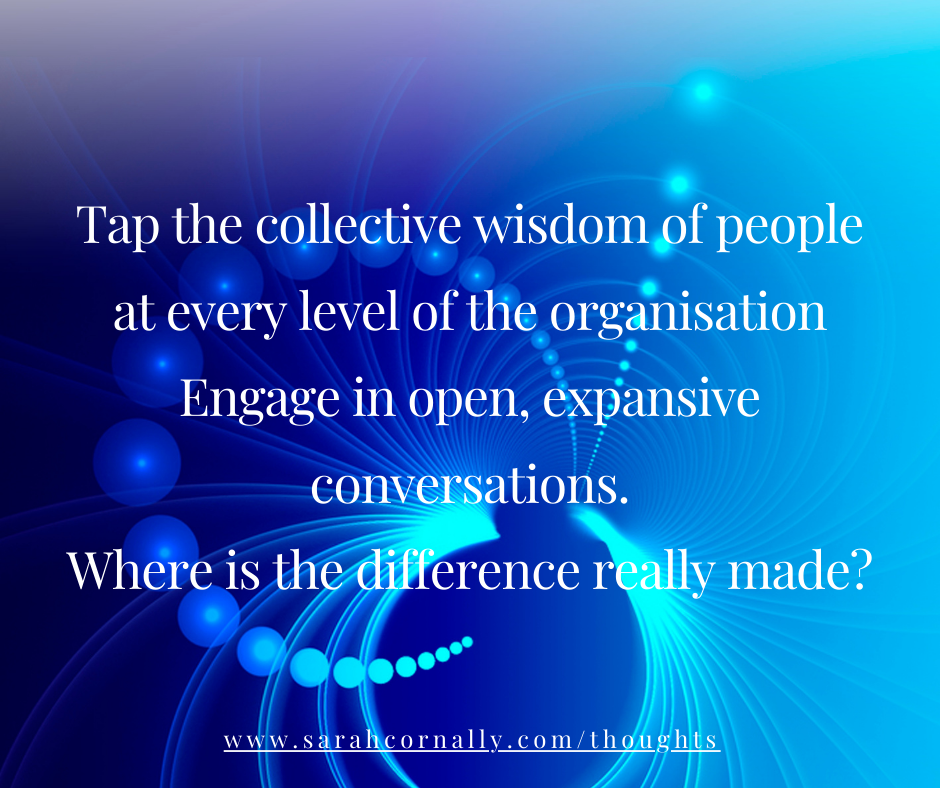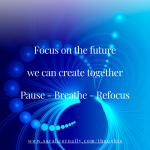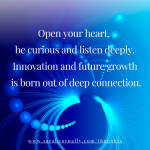
The Creative/Reactive Shift – How do we avoid slipping out of our creative best selves?
How do we avoid slipping out of our creative best selves into a reactive divisive place as lockdown eases?
There’s an interesting dynamic playing out in our nation right now. If you look at why we succeeded so well at containing the Corona virus in Australia it was because the vast majority became unified around a single focus: making sure we contained the numbers so Covid cases didn’t overwhelm our health system. And our leaders and community united in a common purpose and vision.
Politically, the national cabinet worked well together. The unified, purposeful and visionary orientation they demonstrated resulted in a remarkable outcome. And whilst in many ways this orientation was activated by fear, it created a clear sense of purpose and vision – typical of what we call a creative orientation.
However, this is changing. Now that things are opening up, it’s clear that some people are still fixed on health matters whilst others are focused on other things such as the economy. So we have a split focus – we no longer have a unified vision and a unified sense of purpose. And as a result we’re now seeing a lot of reactivity.
We are seeing state premiers levelling accusations against other premiers – they’re now no longer aligned, they’re in conflict. It has been touted they are now pursuing self-interest or their view of the state’s interests. There is a complex array of interests, all valid. There appears to be a lack of willingness to listen and learn from the other anymore or to understand their different perspectives and what’s driving their point of view. We are seeing people reactively judging, blaming and criticizing. In effect what we’re witnessing is a classic illustration of the reactivity that arises in the face of complexity.
People are acting out of fear rather than a sense of common purpose and vision. And of course there are a lot of things that have caused us to be afraid – there have been deaths and this is extremely serious – and it’s also important to keep it in perspective. There may be an equal number or more from the social consequences of economic hardship. If you put health first and disregard the economy, it’s as damaging as putting the economy first and disregarding health. The question is how do you hold both as equally important? That is a complex challenge worth grappling with.
And this is the trap which organisations may fall into too. People may start thinking they should be leading an organization in a particular direction and stop listening, seeking to understand other viewpoints and bringing everyone into alignment. If we all go into survival mode it will become competitive and combative rather than aspiring to the best outcomes for all.
Now, more than ever, it’s important to continue to listen to learn and to hold all perspectives together. This generates a lot of creative tension – but the challenge is how do we stay in the creative tension because something better will emerge – rather than making one perspective superior over the other or making one right and one wrong. Because this is about ‘both/and’. It’s about harnessing all the good that came out of our response to Covid learning from our success and not slipping back into old reactive tendencies. This is not about who is right, it is about what do we want to create together.
There’s also a systemic lens for this too. If you see Covid as a universal force – something that’s bigger than all of us (which of course Nature is and viruses are evolutionary forces in Nature) – it has illustrated both how significant and insignificant we are at the same time. Because we can be as careful as we like with our own hygiene but if others aren’t taking care then we can be overwhelmed by what’s going on in the collective. So it’s highlighting that your inter-dependencies are equally important which is what’s playing out in politics right now.
Looking at it systemically – the principle of ‘Belonging’ is being demonstrated. Do you belong or do you not belong? The closing of borders and asking people to practice social isolation is about getting clear about boundaries. It has asked us to examine who’s in your household and who isn’t – what’s in and what’s out – and how do we decide what’s in and what’s out.
Nationally, what we’re seeing right now is that because NSW and Victoria didn’t close the borders, but the rest of the states did there’s an issue with returning to normal. There will be the same issue with self-isolation for some – anxiety about reconnecting. If you have too much comfort or safety with one it can be hard to be open to or return to the other. And that’s echoed again in us personally: are we taking the time in this to go inward to manage our inner house so that how we show up outwardly is healthy and constructive or are we just responding to everything that’s happening and not taking care of ourselves so we can stand in this in a healthy way?
Then there’s the principle of ‘Orders’. Who is responsible for the system? Who has the greatest responsibility – the national cabinet? But there’s also a question of orders around competence. For example, should the health professionals be in the first position or should the economists be in the first position? And when should which be in charge? In Queensland right now health seems to be in charge whereas there appears to be more of an interaction between health and economics in some other states. Is health and commerce being viewed as a part of good economics? How do you have them in the right order in the right context for the right reason? So when we consider ‘Orders’ we talk about who is responsible for the system and we also talk about who has what competence and who makes what contribution – so getting the balance and exchange right is really important. The ability to step back and determine this from a balanced perspective is key. This requires people who can listen to and value other perspectives to find the collective wisdom.
Considering the principle of ‘Exchange’, the exchange of energy, knowledge and perspective need to be in a form of respectful give and take. This requires people who can listen to and value other perspectives to find the collective wisdom. Covid is highlighting that. It’s fascinating to see how Covid is bringing to light key systemic principles and how they are playing out in the way we are dealing with the situation. The question for us is how to engage with this situation and lead from a systemic perspective that meets the challenge to adapt and evolve into our emerging future that is good for all.








